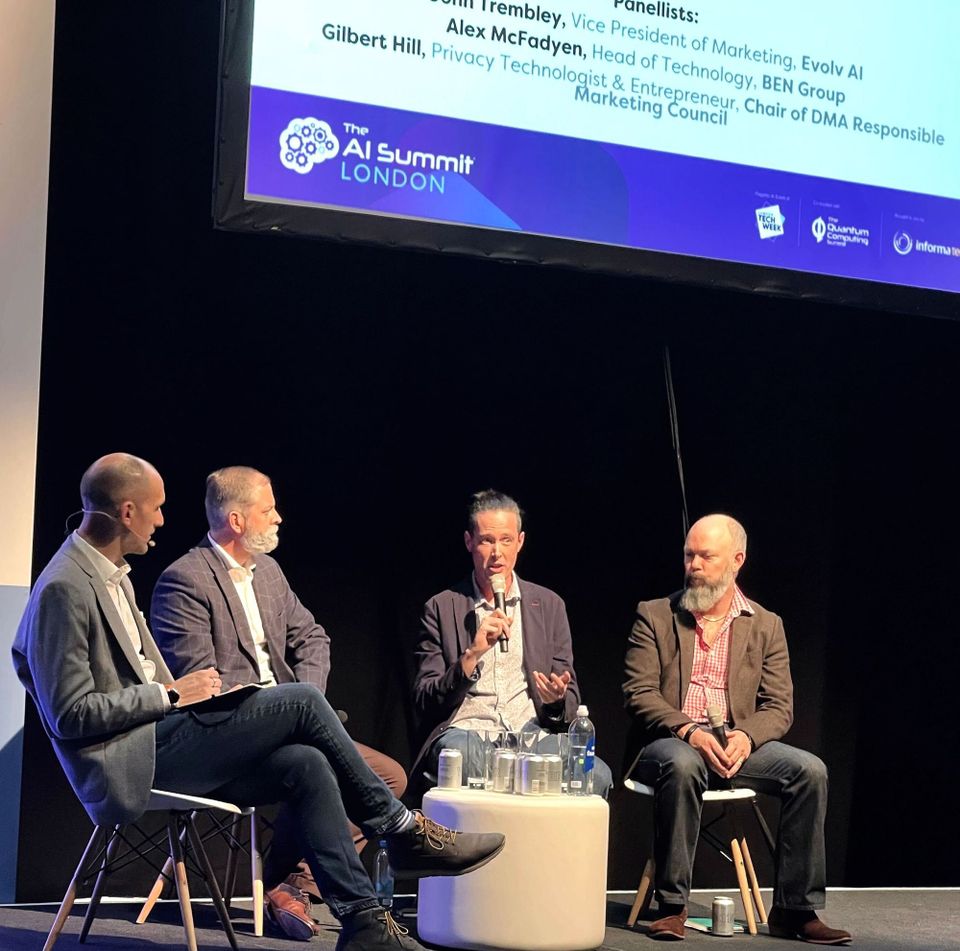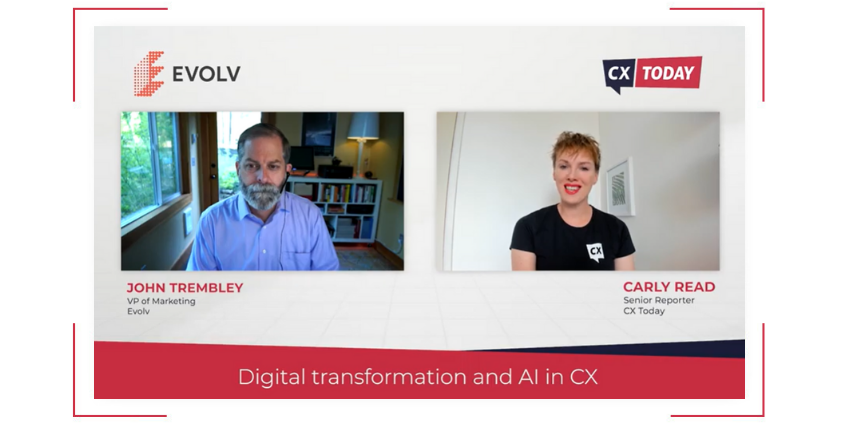Privacy vs Personalisation

I was invited to be part of a panel at The AI summit London 2021 where we discussed "Bridging the Gap Between Personalisation and Privacy – Can AI Help?". It is a fascinating topic with some true experts in the field (and me) on the panel:
- Moderator - Tim Bond, Director of Insight, Data Marketing Association (DMA)
- John Trembley, Vice President of Marketing at Evolv AI
- (me) Alex McFadyen, Head of Technology, BEN Group
- Gilbert Hill, Privacy Technologist, Entrepreneur and CEO of FinFlo / TapMyData
Unfortunately, the panel wasn't recorded, but I still wanted to share the debate and a few notes, as others may find it useful or thought provoking.
The core questions raised in the debate
When it comes to personalisation, there is often a trade off with concerns of user privacy. Consumers are more likely to pass on their personal information if they are getting truly valuable returns. Can AI help resolve the personalisation and privacy paradox? What are the right approaches?
The conversation flowed between two main areas, privacy and how AI/Tech can help - both interlinked, and expertly navigated by Tim.
After a quick intro, where we discussed examples in our own lives of personalisation gone well (or badly) we dove into the question of privacy:
- Do consumers really care about privacy?
- Is personalisation possible without raising concerns over data privacy?
- How can brands explain the benefits of data sharing? (For both them and the customer)
Then we moved onto how can technology help:
- Can AI help resolve this seeming conflict between personalisation and privacy?
- Is there a risk that consumers are even more concerned by the ‘black boxes’? (Processing they can’t even see)
- What are the right approaches to bring AI into a business to help? Are there any examples you can share/are aware of?
We finished on some advice, answering the question: What should the organisations watching today go away and do?
Notes
Instead of trying to replicate the debate, I'm going to include some ideas shared (likely poorly paraphrased/misremembered - sorry). I hope, however, they are useful or at least thought provoking:
- John Wanamaker (1838-1922) a pioneer in marketing said - “Half the money I spend on advertising is wasted; the trouble is I don't know which half.”
- Personalisation, can be a double edged sword - "personal service" or a "personal recommendation" can be a big positive for the consumer, but if you "get personal", it can become creepy ("is my phone listening to me?", "how do they know this?"). Especially when the ad/suggestion is outside the expected context or far too specific.
- If users are given control over their data, they will be more deliberate with it - making sure it's accurate. Deal them into the process.
- When done well, with the consumer's needs and privacy in mind, personalisation results in better outcomes for everyone; less wasted time/attention of consumers and less wasted dollars from the brand and money to make even better content for the creators. AI can help with all three, as we saw at BEN with Philo.
- Low conversion rates make already expensive customer views even more expensive - optimizing for conversion often results in a better ROI than trying to maximize for views at the top of the funnel.
- Black boxes of decision-making already existed before technology/AI. Human based processes can often be harder to audit and check - the increased attention to the output data is allowing better systems to be built in the future.
- Governments and industry have roles to play, and we've seen great steps forward with things like GDPR and CCPA, but we need to be thinking past what it's possible to do technologically, or even legally and to what's the right thing to do, ethically.
- PET (Privacy Enhancing Technology) can help a lot, by offering systems to help improve the privacy of the data though AI or cryptographic means. Differential privacy is very interesting.
My closing comment to the question : What should the organisations watching today go away and do?
Brands should start by aiming to empower and engage with your audience, by understanding them as a group and in context - be respectful. You don't need to stalk individuals and invade privacy to get results.
Further reading / watching



(thank you to Alexandru Badiu for the headline photo)







